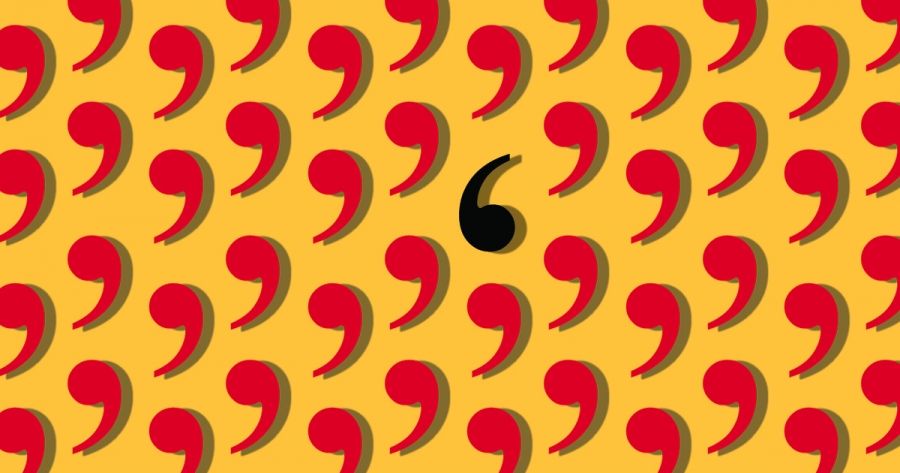
- Free Article: No
- Contents Category: Language
- Custom Article Title: Apostrophe anarchy! For the love of punctuation
- Review Article: Yes
- Article Title: Apostrophe anarchy!
- Article Subtitle: For the love of punctuation
- Online Only: No
- Custom Highlight Text:
An email arrived in my inbox recently with an article from the British newspaper The Times. It was an obituary of John Richards, a former journalist and the man who founded the Apostrophe Protection Society in 2001. This organisation was dedicated to the protection of the apostrophe, ‘a threatened species’, according to Richards. He closed the Society down in 2019; aside from his age at the time (ninety-six), he concluded that ‘the ignorance and laziness present in modern times has won’.
- Article Hero Image (920px wide):

- Featured Image (400px * 250px):

- Alt Tag (Featured Image): Apostrophe anarchy! For the love of punctuation
Where does the word apostrophe come from? It is a word of Greek origin that came into English via Latin, and derives from the Greek ‘turn’, ‘turn away’. Two senses of apostrophe evolved: one was a sense used in rhetoric meaning ‘an exclamatory passage in a speech or poem addressed to a person’ (usually an absent person or a thing that has been personified); the second was the punctuation mark that represents omitted letters and the possessive. Both senses appear in English from the middle of the sixteenth century, and the rhetorical sense was current up until the end of the nineteenth century before declining as rhetoric became something less commonly studied and practised by the general public.
I was intrigued to know when the apostrophe started creating such fuss and debate. A search through Trove’s historical newspaper database suggests that the first comments on the use of the apostrophe in Australia appear at the beginning of the twentieth century. In 1911, a schoolmaster (writing as J.B.G.) listed numerous faults with people’s grammar, noting that the ‘apostrophe is a stumbling-block to not a few writers’. Complaints continued at a fairly steady, if muted, pace throughout the twentieth century, tempered no doubt by the high standards of once-ubiquitous newspaper copy editors.
The rise of the term greengrocer’s apostrophe – or should that be greengrocers’ apostrophe? – reflects some increased interest in the topic of the apostrophe and its misuse in public. Interestingly, The Oxford English Dictionary only records the term from the beginning of the 1990s. The first quotations provided as evidence are observational – simply commenting on the tendency of greengrocers to use the apostrophe in weird and wonderful ways – but by the end of the century, the quotations reflect how the term is being used to refer to common errors in the use of the punctuation mark.
Indeed, it is in the twenty-first century that there has been both a greater visibility given to the incorrect uses of the apostrophe, as well as a greater sense of panic about such misuse. It was only when the apostrophe was suddenly everywhere (in the wrong place) and nowhere (not being used when it should) that there was a need to call attention to it, and, in the case of John Richards, to create a Society to defend it.
Of course, it’s the internet that is to blame for all this. Social media, online writing, texting, and the decline of copy editing have led to a much greater variety in standards of writing, and mistakes are far more likely to creep in and also to become a matter of little concern for many people in the informal context of social media and messaging. As J.B.G. observed in 1911, the apostrophe poses difficulties for many; these days, many of us just don’t bother about getting it right.
But it isn’t all a product of ‘ignorance and laziness’. As Because Internet: Understanding the new rules of language (2019), Gretchen McCulloch’s fascinating study of internet language, argues, efficiency is one of its key features. Losing an apostrophe can be an efficiency. Language evolves and so goes the apostrophe. It can be argued that in most instances, we know what we mean when we read something, whether or not it has an apostrophe, or whether the apostrophe is in the correct place.
Simplicity has also increasingly determined the loss of the apostrophe in business names. Again, some attribute this to the rise of the internet and digital marketing. For example, search engine optimisation works better for a brand without an apostrophe, and URLs don’t allow for apostrophe use. Online forms and databases can also take issue with apostrophes, not recognising, for example, people with apostrophes in their names.
The apostrophe will continue to matter in formal writing – it hasn’t been killed off quite yet. I certainly find myself attached to it, and annoyed when I see it not being used correctly. But language serves a practical purpose, and in many contexts the apostrophe may not matter quite as much as we would like it to. John Richards may have been right that the battle will ultimately be lost.



Comments powered by CComment